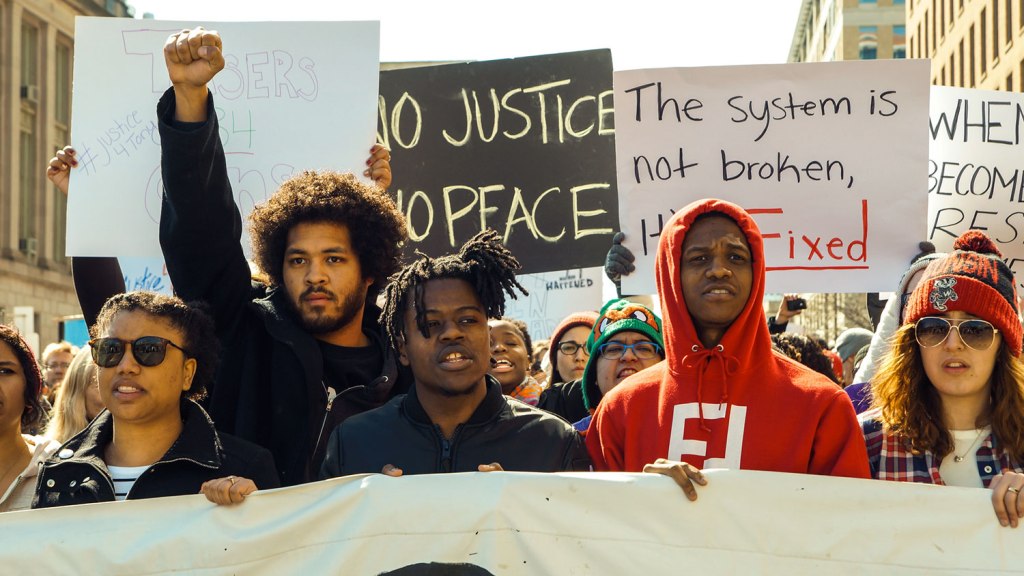Racism, Environmental Injustice, and Climate Change

The esteemed historian of slavery and capitalism Walter Johnson had a great Boston Review piece a couple of weeks ago about how the legacies of racism are going to determine who suffers the greatest impact from climate change.
South of East St. Louis, down in the broad flood plain of the Mississippi known as the American Bottom, there is a little town that is gradually sinking in a flood of human waste. There is just no other way to say it, no other way to begin to tell the story of Centreville, Illinois. If you drove through quickly and did not look very carefully, it might look like any other rural town in this part of the Midwest. Gravel roads lined by storm-torn trees, large lots, small one-story houses, bread-box shaped mailboxes with small red flags out at the ends of driveways. But there are signs of the floods everywhere: abandoned houses surrounded by swampy yards, drainage ditches filled with brackish water, little wads of toilet paper hanging waist-high from the bushes by the side of the road.
Even a moderate rain can flood the intersections and lowlands of Centreville. When it rains heavily, much of the town is submerged in two or three feet of water. Water wears away at the foundations of homes and shorts out furnaces and hot water heaters. Outside some of the houses in Centreville, you can see three or four generations of ruined appliances lined up in a row. A resident I met last year told me that he had spent most of the winter living in the back room of his house with a space heater running around the clock. Without a functioning furnace or hot water heater, he had turned off the water to the house so the pipes did not freeze, drinking, cooking, and even bathing with bottled water.
Almost all of the water that surrounds the houses and floods the roads is dangerously contaminated. The sewer system in Centreville works as poorly as the storm drains. Each resident’s yard has a sewer cleanout so sluggish pipes can be cleared with a drain snake—but many of them run backward. Small fountains of raw sewage bubble up into the yards twenty-four hours a day, flowing into fetid sluiceways that run between the houses. Some days, especially in the summer, the whole town smells like an outhouse. And when it rains, and the water begins to rise, the sewage follows the water, out into the drainage ditches and the roadways, across the yards, into the houses. Many of the houses in Centreville, even the best-maintained houses, bow in the middle, where the foundations are gradually sinking into swampy ground.
It is easy to recognize in Centreville, which is 97 percent black, an outline of the African American past: segregation, rurality, poverty. More than one time I have heard visitors say, “It’s like Mississippi in the 1930s.” And there is something true and revealing about the comparison. But more even than the past, Centreville looks like the future—a future unfolding at the confluence of climate catastrophe, structural racism, infrastructural deterioration, and widespread indifference to black suffering.
The whole thing is well worth reading, going into detail about recent floods in this town, interviewing residents, etc. This is a story being repeated around the nation and around the world. And yet we can barely even talk about race in this nation; the white fragility in the school thread comments here demonstrate over and over again how even white liberals recoil when confronted with how even structural racism implicates them and the choices they make. There isn’t any evidence that we are going to do anything as a society to share the burden of climate change equitably. But at the very least we can publicize these stories and hope that someday, maybe, enough people will care to do something about it. For the case of impoverished black neighborhoods like Centreville is also the case on unequal schools, policing, jobs, and all the other structures that few whites really wants to do much to fight.
